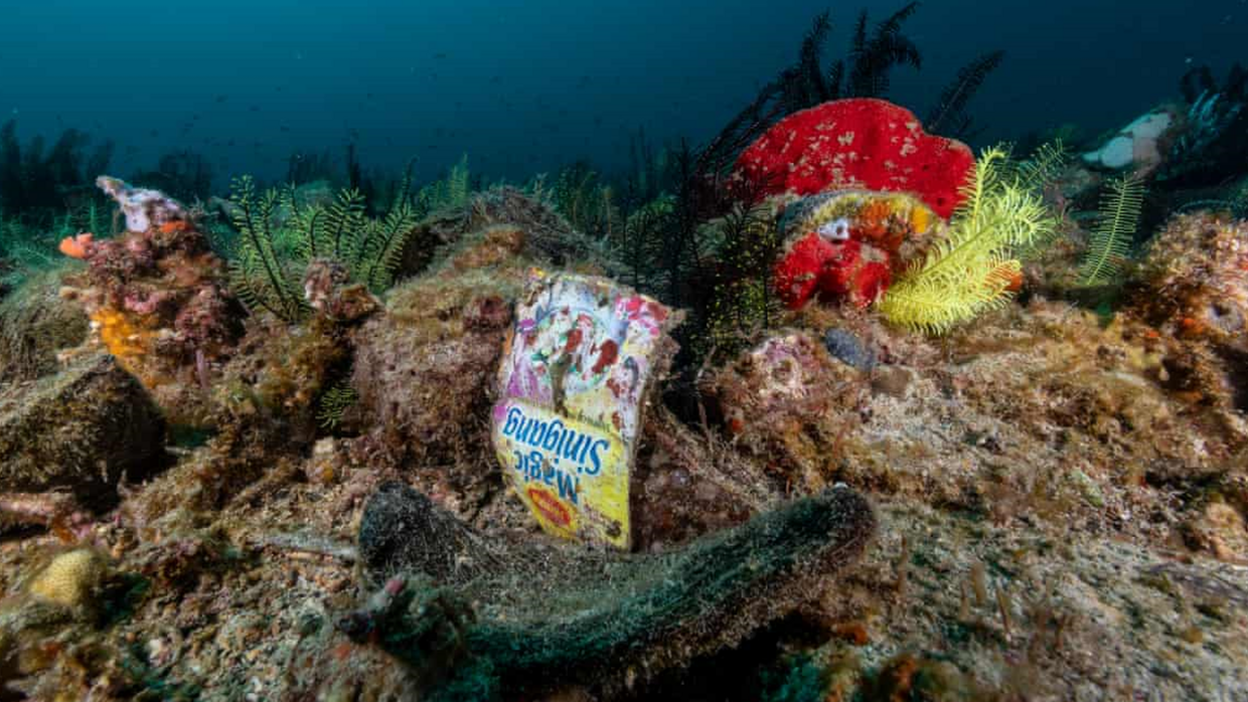Plastic waste: 20 firms produce more than half of single-use waste
- Published
- comments
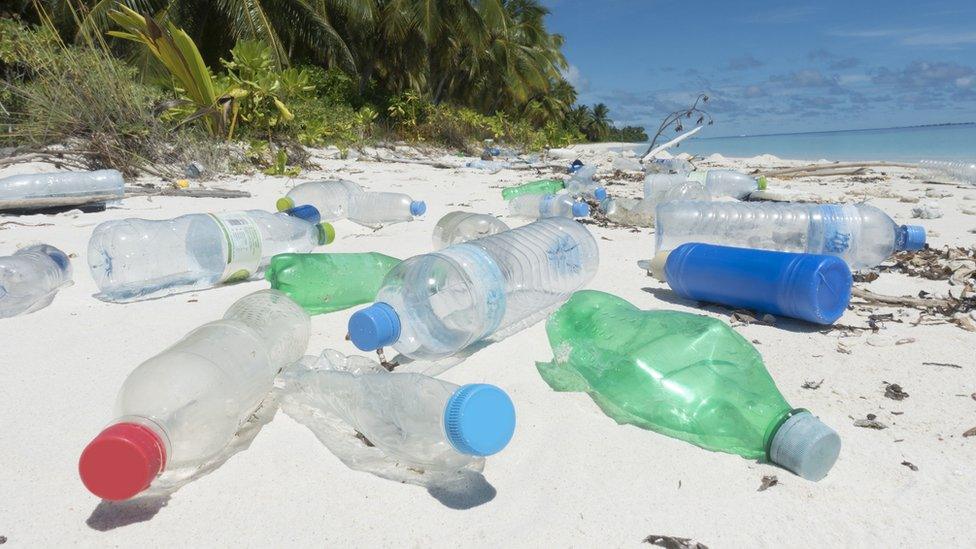
New research says just 20 companies are responsible for producing more than half of all the single-use plastic items thrown away across the world.
The Plastic Waste Makers index, published by the Minderoo Foundation in Australia, looked at approximately 1,000 factories which make the raw materials needed for single-use products.
The production and use of plastic is a big environmental problem. Plastic bottles, food packages and bags are among billions of items that are used once and then thrown away, and these can often end up in our oceans.
The research looked at the companies which are right at the start of the plastic supply chain and produce polymers, which all plastics are made from. Polymers are mostly produced by processing fossil fuels like oil, gas and coal which can all have a very harmful impact on the planet.
The study names 20 companies which it says create 55 per cent - which is more than half - of the world's single-use plastic waste.
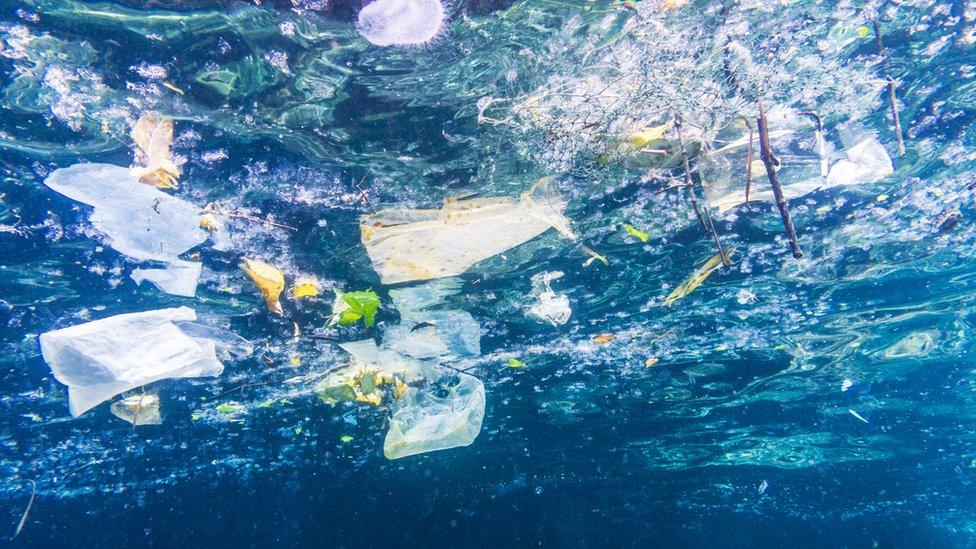
Lots of single-use plastic ends up in the world's oceans
ExxonMobil was the biggest producer of single-plastic waste, contributing 5.9 million tonnes in 2019, according to the report.
The researchers behind the report also say the production of single-use plastics could increase by around a third (30%) in the next five years, fuelling their contribution to global warming and ocean pollution.
What else did the study look at?
The study also looked at which countries generate the most single-use plastic waste. Australia came out on top, the United States was second, and the UK was number four on the list, with more than 40kg of plastic waste generated per person per year.
Part of the increase in the demand for plastic is linked to the need for masks and other protective and medical equipment to deal with the coronavirus pandemic.
In 2019, 130 million metric tonnes of single-use plastics were thrown away around the world, with 35% burned, 31% buried in managed landfills and 19% dumped directly on land or into the ocean, according to the research.
What have the researchers said?
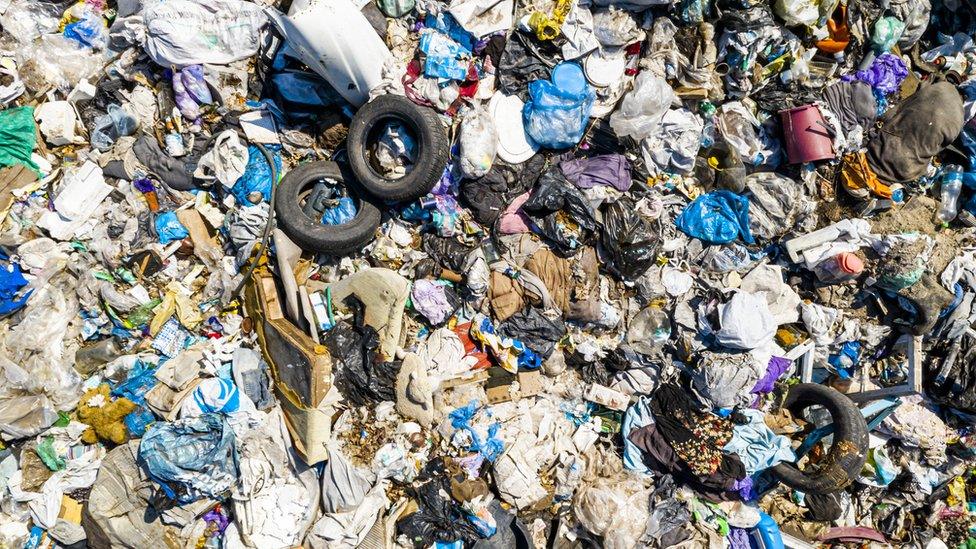
Plastic can also end up in landfill
The Minderoo Foundation said petrochemicals companies should be required to disclose their "plastic waste footprint" and commit to producing plastics from recycled plastic waste, rather than fossil fuels, in order to help tackle the problem.
Professor Sam Fankhauser, who is a specialist in climate change economics at the University of Oxford and the London School of Economics, contributed to the study.
"Our reliance on oil and gas is not only fuelling climate change, but as the primary material used in the production of throwaway plastics also devastating our oceans," he said.
WATCH: Martin finds out why plastic is a problem (Pictures from Greenpeace, Caroline Power and Blue Planet II/BBC iPlayer)
Dominic Charles, who is the Minderoo Foundation's director of finance and transparency, believes the research highlights "how the future of the plastic waste crisis is in the hands of just 20 companies".
He added that until now, the emphasis of efforts to curb plastic pollution has been on the individual choices that consumers can make.
"But we need to go after the tap, to turn off the tap of fossil fuel plastics and we need to create plastics from recycled material," he said.
What are companies doing to tackle the issue?
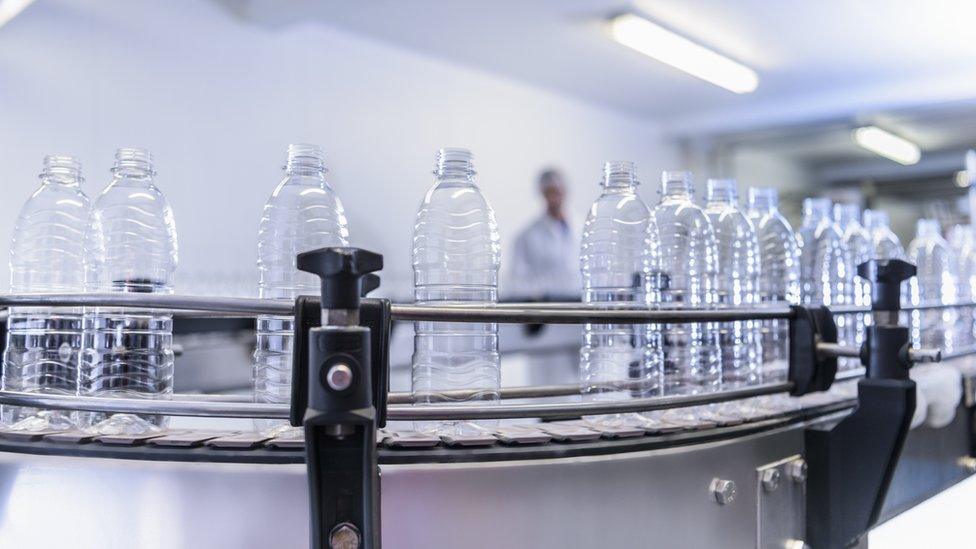
Just 20 companies produce more than half of single-use plastic waste, according to new study
ExxonMobil, which is the world's largest producer of plastic polymers, told Reuters that it "shares society's concern about plastic waste and agrees it must be addressed", requiring a collaborative effort between business, governments, green groups and consumers.
The company added that it was taking action to address plastic waste by increasing recyclability, backing efforts to recover more plastic waste and working on advanced recycling solutions that could help lower greenhouse gas emissions linked to products.
It says it is a founding member of the Alliance to End Plastic Waste, which has collectively committed more than $1 billion (£708m) to develop safe, scalable and economically viable solutions.
Ineos, which is another large polymer producer, was approached by the BBC for a comment on the findings, but is yet to respond.
According to its website, the company is working on ways to chemically recycle plastic, adding that "the holy grail of plastic recycling is fast becoming a reality and will mean we can reduce our reliance on fossil fuels to make our products".
- Published17 May 2021
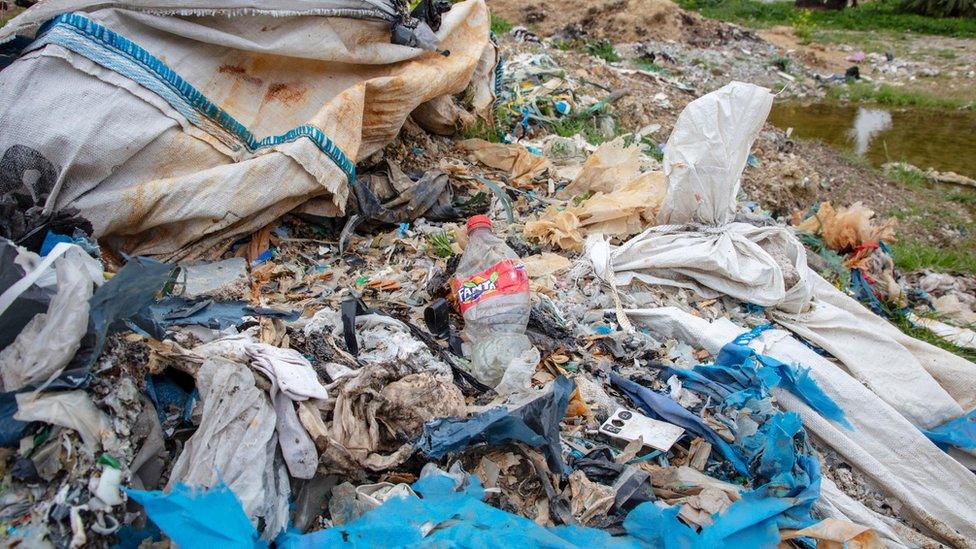
- Published17 March 2020
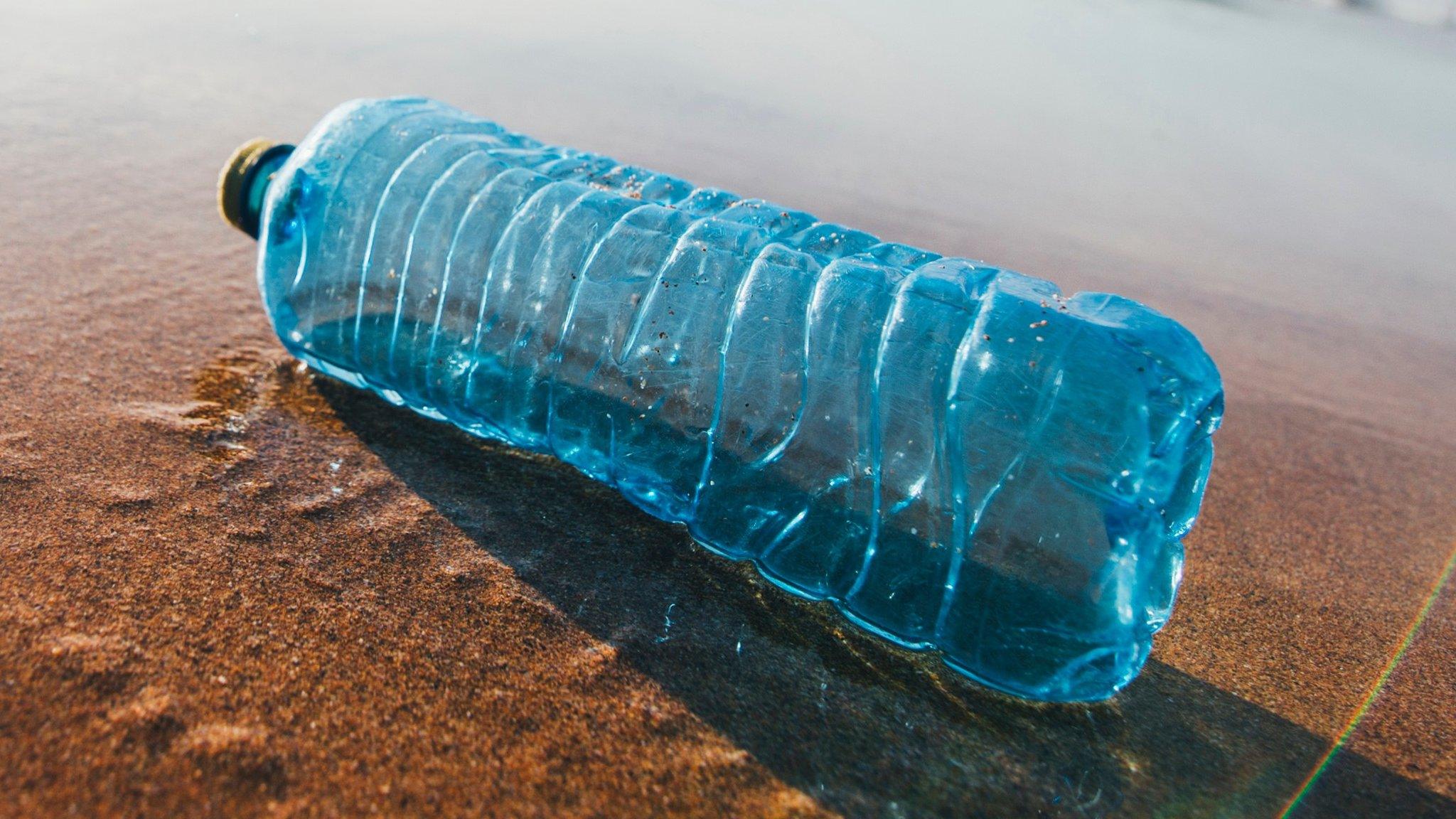
- Published8 December 2020
